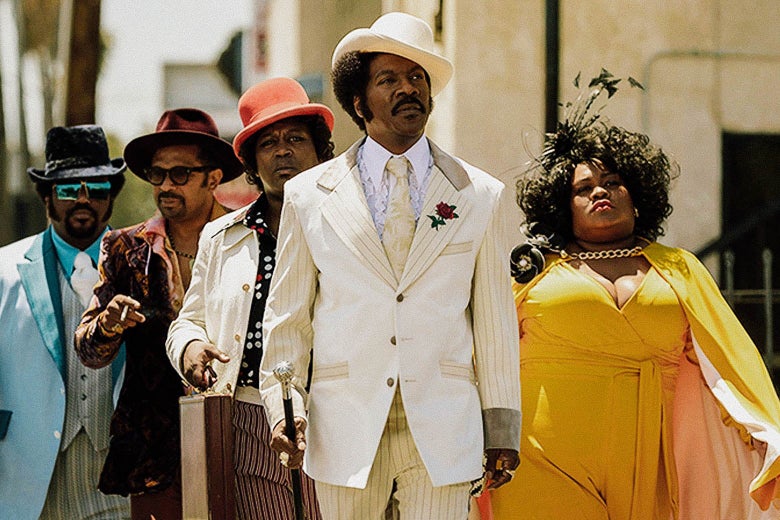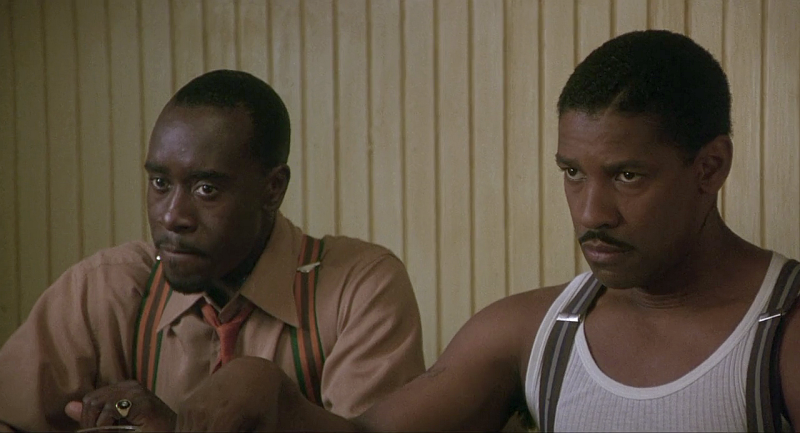Zelig
Woody Allen is a writer/director who has never been afraid to go where other artists fear to tread and proof of this can be found in a blazing technical achievement and cinematic oddity called Zelig which finds the Woodmeister putting his own spin on a movie genre that is frightening in its authenticity, almost making the viewer forget they are experiencing a work of fiction.
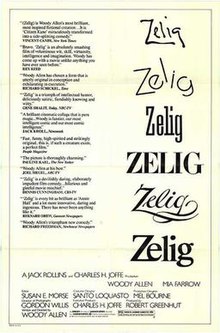
The 1983 film is actually a documentary centered around a fictional figure named Leonard Zelig. Zelig was a human chameleon, a man able to look and act like whatever people he is associating with at the moment and blend in seamlessly, even blessed with the ability to change the pigment of his skin to blend in with people of another race. It is eventually revealed that Leonard Zelig has mental health issues that are somehow connected to this ability and a psychiatrist named Dr. Eudorah Fletcher (Mia Farrow) decides to make a study of Zelig and finds herself falling in love with him.

This synopsis might sound like the plot of a typical Woody Allen comedy but this is anything but. Woody mounts this story in the form of an actual documentary, beginning during the 1920's and utilizing actual news and Hollywood footage that show Leonard Zelig interacting with everyone from Fanny Brice to Adolph Hitler. Woody seamlessly blends his character and the Eudorah Fletcher character into authentic news footage (with a serious assist from editor Susan E Morse), providing the story with an air of authenticity unlike anything I have ever seen. This film looks so real that I actually found myself pausing the movie in the middle and googling whether or not Leonard Zelig was a real person.

Like most documentaries, the film follows Leonard's humble beginnings as the human chameleon who used his abilities to enter important social circles and how the pressure of moving through these circles causes him to crack and then become the obsession of Dr. Fletcher, whose care and devotion turns him into a media celebrity when he actually stops being a chameleon. Then in a turn we don't see coming, consequences of Zelig's chameleon behavior trigger a tragic relapse.

Allen is to be applauded for creating a squirm worthy piece of screen entertainment that provides more nervous laughs than I've experienced in a long time. I also loved the choice Woody made of writers like Susan Sontag, Irving Howe, and Saul Bellow serving as commentators for the documentary while having older actors playing the fictional characters in the present, adding even more realism to the proceedings. In addition to Fanny Brice and Hitler, we also get to see Zelig and Dr. Fletcher interact with Charles Chaplin James Cagney, Carole Lombard, Joe DiMaggio, Marie Dressler, Babe Ruth, Billy Rose, William Randolph Hearst, and F. Scott Fitzgerald, among others. A cinematic curio to be sure, but a sparkling technical achievement.
Woody Allen is a writer/director who has never been afraid to go where other artists fear to tread and proof of this can be found in a blazing technical achievement and cinematic oddity called Zelig which finds the Woodmeister putting his own spin on a movie genre that is frightening in its authenticity, almost making the viewer forget they are experiencing a work of fiction.

The 1983 film is actually a documentary centered around a fictional figure named Leonard Zelig. Zelig was a human chameleon, a man able to look and act like whatever people he is associating with at the moment and blend in seamlessly, even blessed with the ability to change the pigment of his skin to blend in with people of another race. It is eventually revealed that Leonard Zelig has mental health issues that are somehow connected to this ability and a psychiatrist named Dr. Eudorah Fletcher (Mia Farrow) decides to make a study of Zelig and finds herself falling in love with him.

This synopsis might sound like the plot of a typical Woody Allen comedy but this is anything but. Woody mounts this story in the form of an actual documentary, beginning during the 1920's and utilizing actual news and Hollywood footage that show Leonard Zelig interacting with everyone from Fanny Brice to Adolph Hitler. Woody seamlessly blends his character and the Eudorah Fletcher character into authentic news footage (with a serious assist from editor Susan E Morse), providing the story with an air of authenticity unlike anything I have ever seen. This film looks so real that I actually found myself pausing the movie in the middle and googling whether or not Leonard Zelig was a real person.

Like most documentaries, the film follows Leonard's humble beginnings as the human chameleon who used his abilities to enter important social circles and how the pressure of moving through these circles causes him to crack and then become the obsession of Dr. Fletcher, whose care and devotion turns him into a media celebrity when he actually stops being a chameleon. Then in a turn we don't see coming, consequences of Zelig's chameleon behavior trigger a tragic relapse.

Allen is to be applauded for creating a squirm worthy piece of screen entertainment that provides more nervous laughs than I've experienced in a long time. I also loved the choice Woody made of writers like Susan Sontag, Irving Howe, and Saul Bellow serving as commentators for the documentary while having older actors playing the fictional characters in the present, adding even more realism to the proceedings. In addition to Fanny Brice and Hitler, we also get to see Zelig and Dr. Fletcher interact with Charles Chaplin James Cagney, Carole Lombard, Joe DiMaggio, Marie Dressler, Babe Ruth, Billy Rose, William Randolph Hearst, and F. Scott Fitzgerald, among others. A cinematic curio to be sure, but a sparkling technical achievement.
Last edited by Gideon58; 04-18-20 at 05:10 PM.






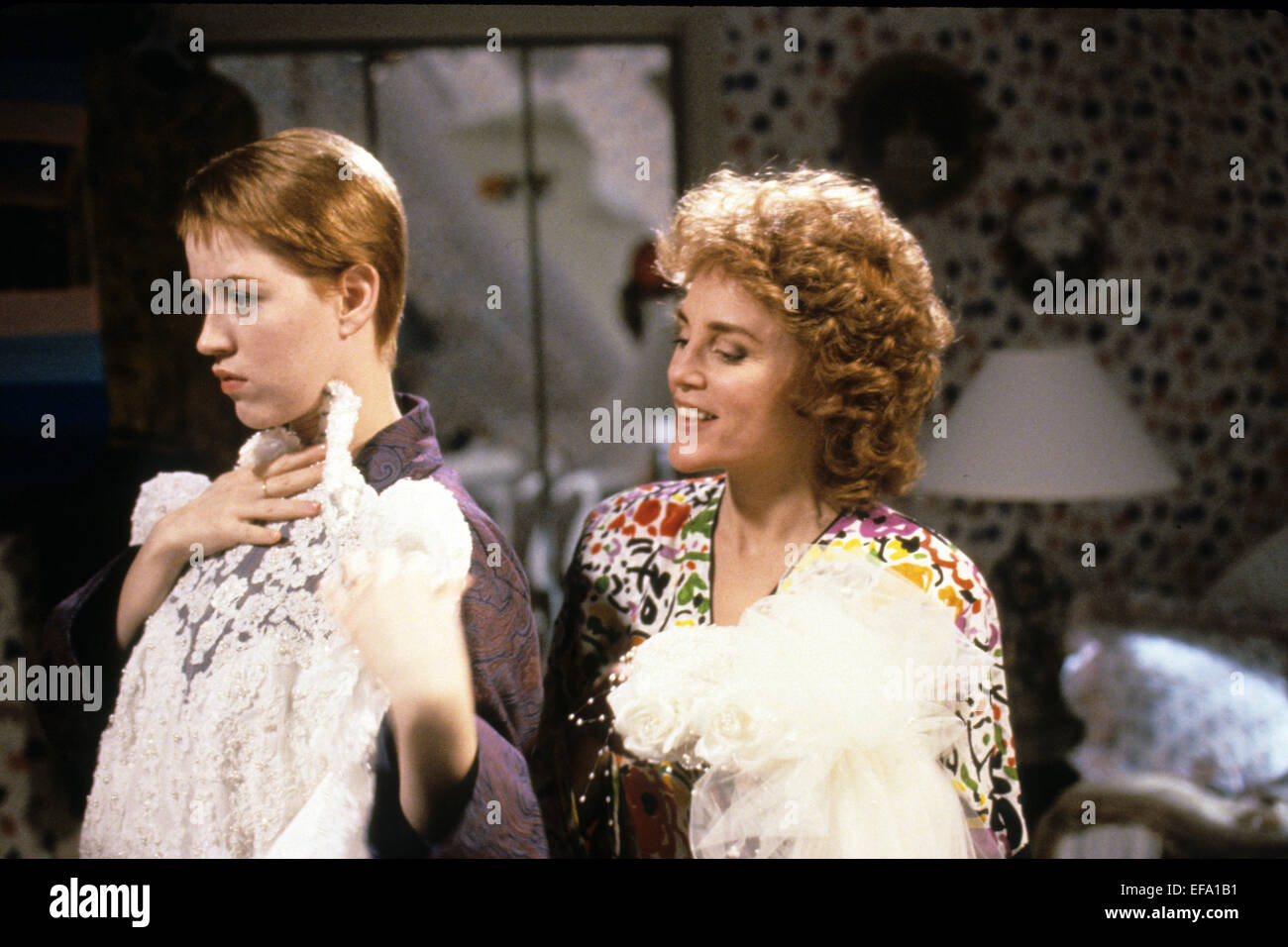
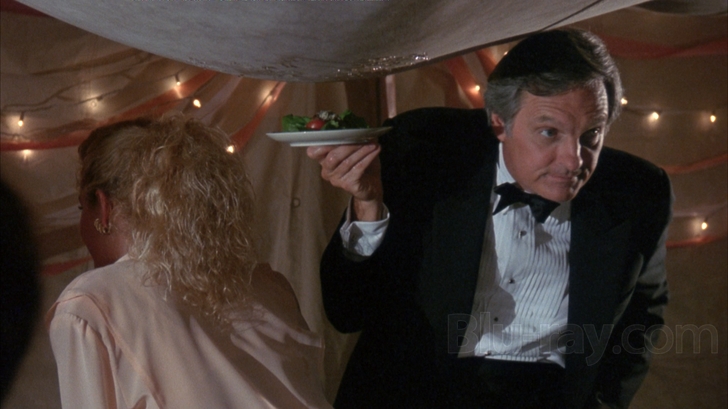
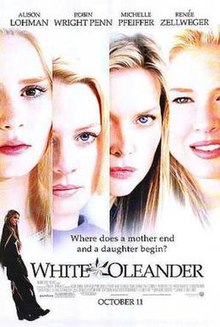

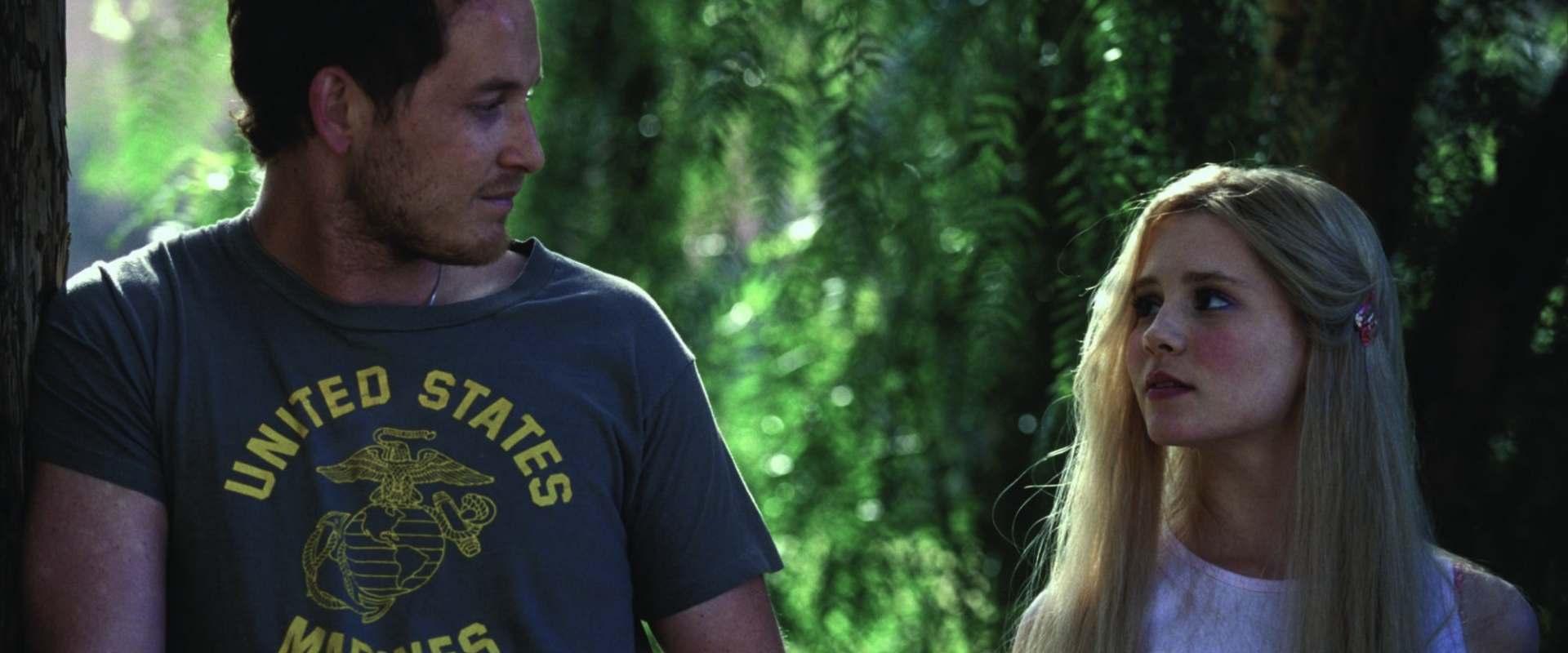
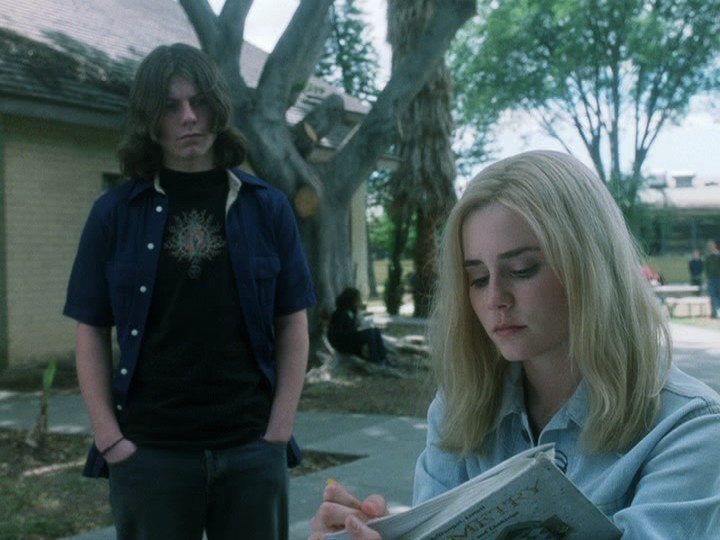


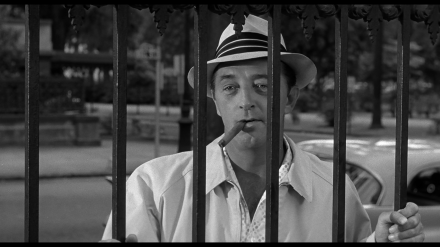

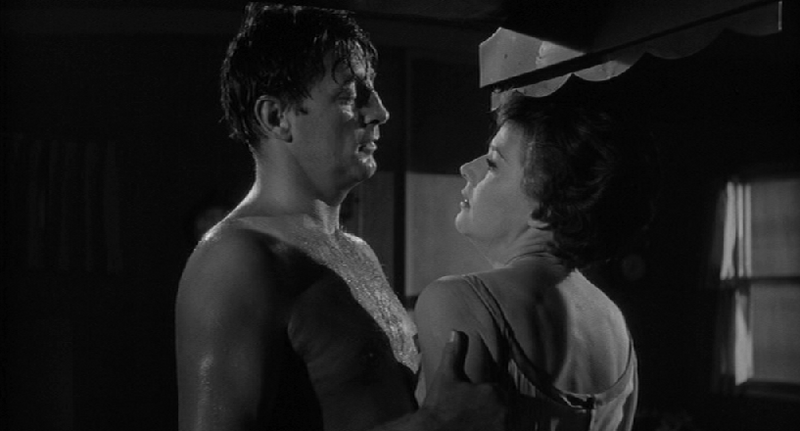




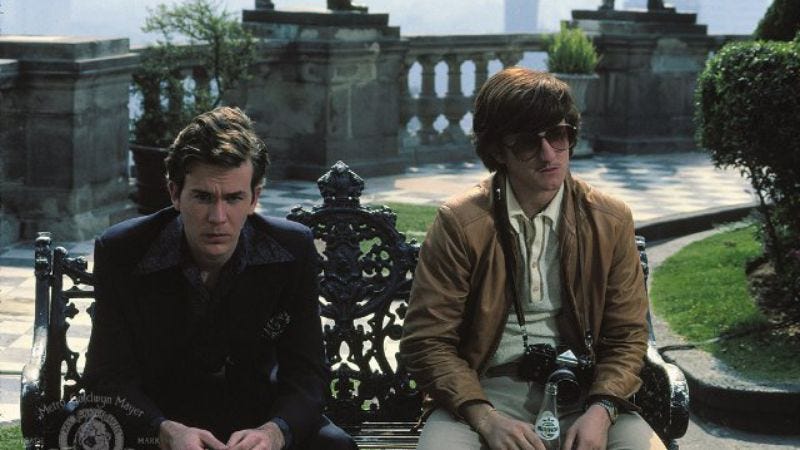

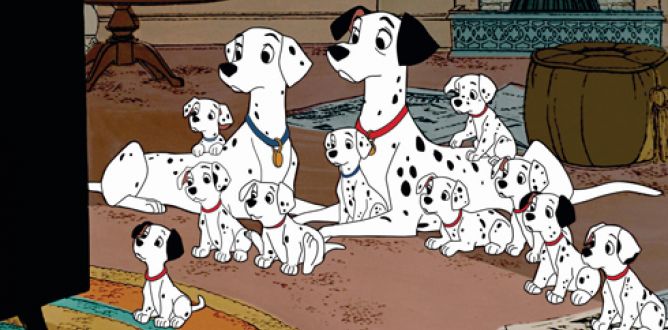
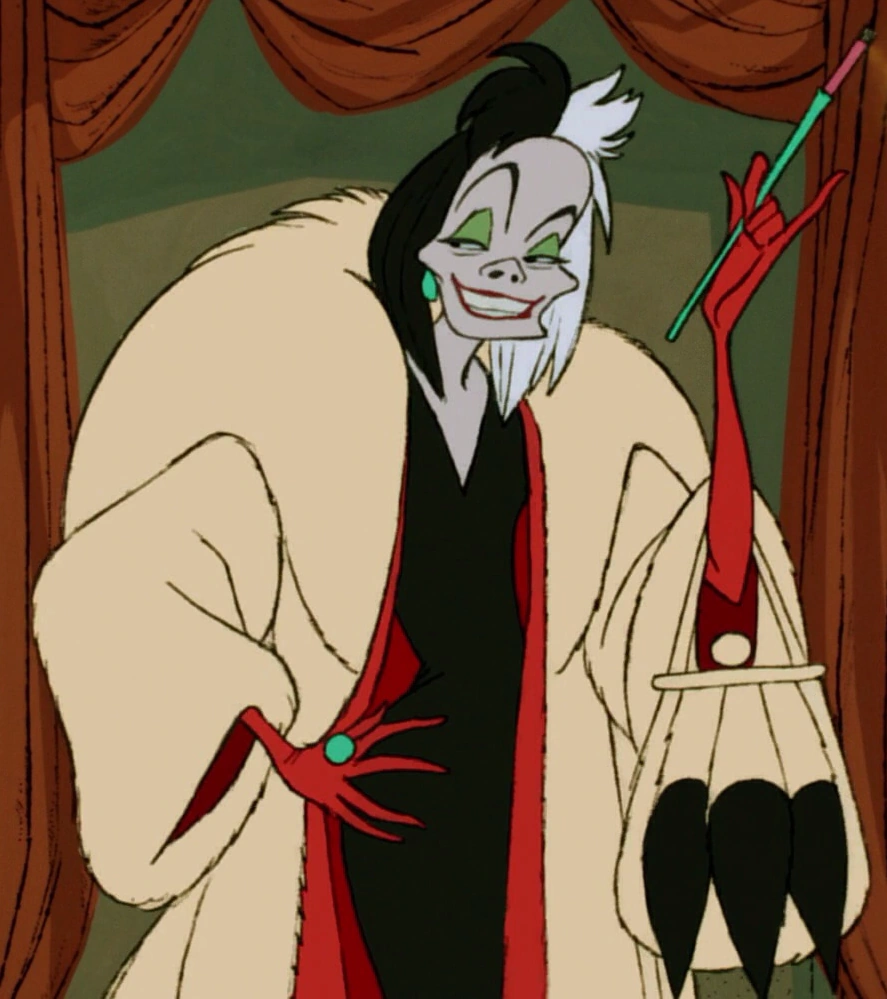

 It's a fun movie, sort of like a 2 hour long 80s music video. The people who knock it, can't stop from comparing it to the original Grease, but other than the name and a few secondary characters, they're both very different movies.
It's a fun movie, sort of like a 2 hour long 80s music video. The people who knock it, can't stop from comparing it to the original Grease, but other than the name and a few secondary characters, they're both very different movies.


